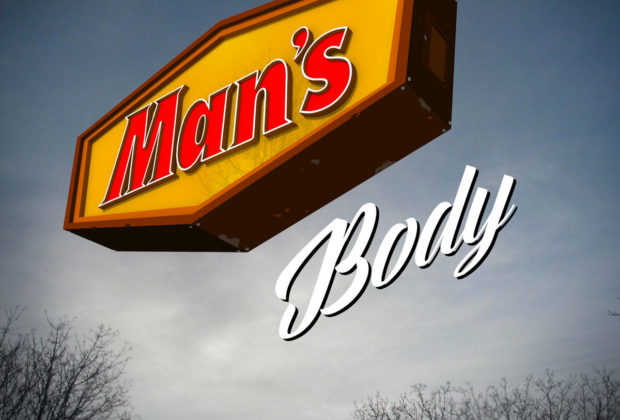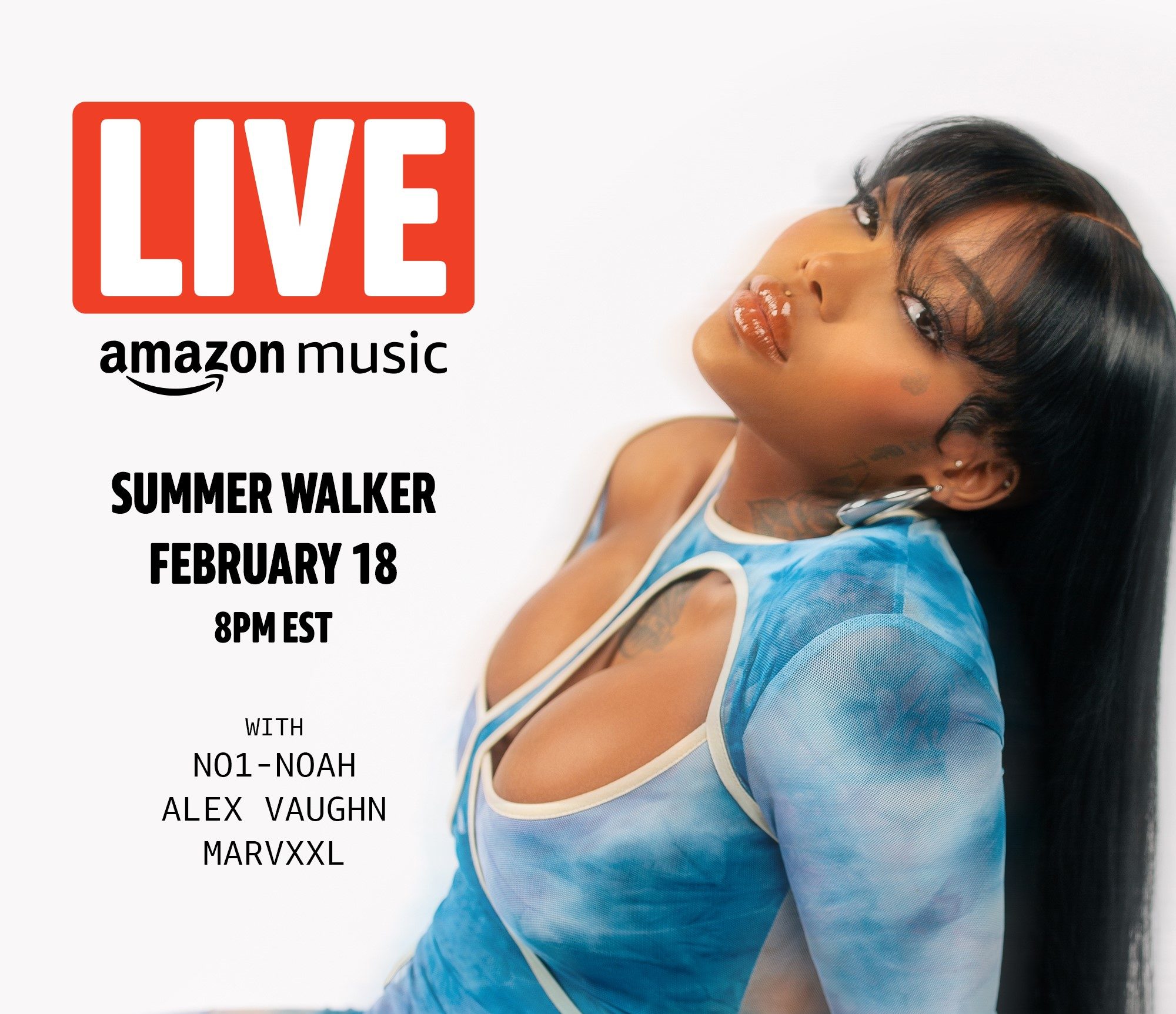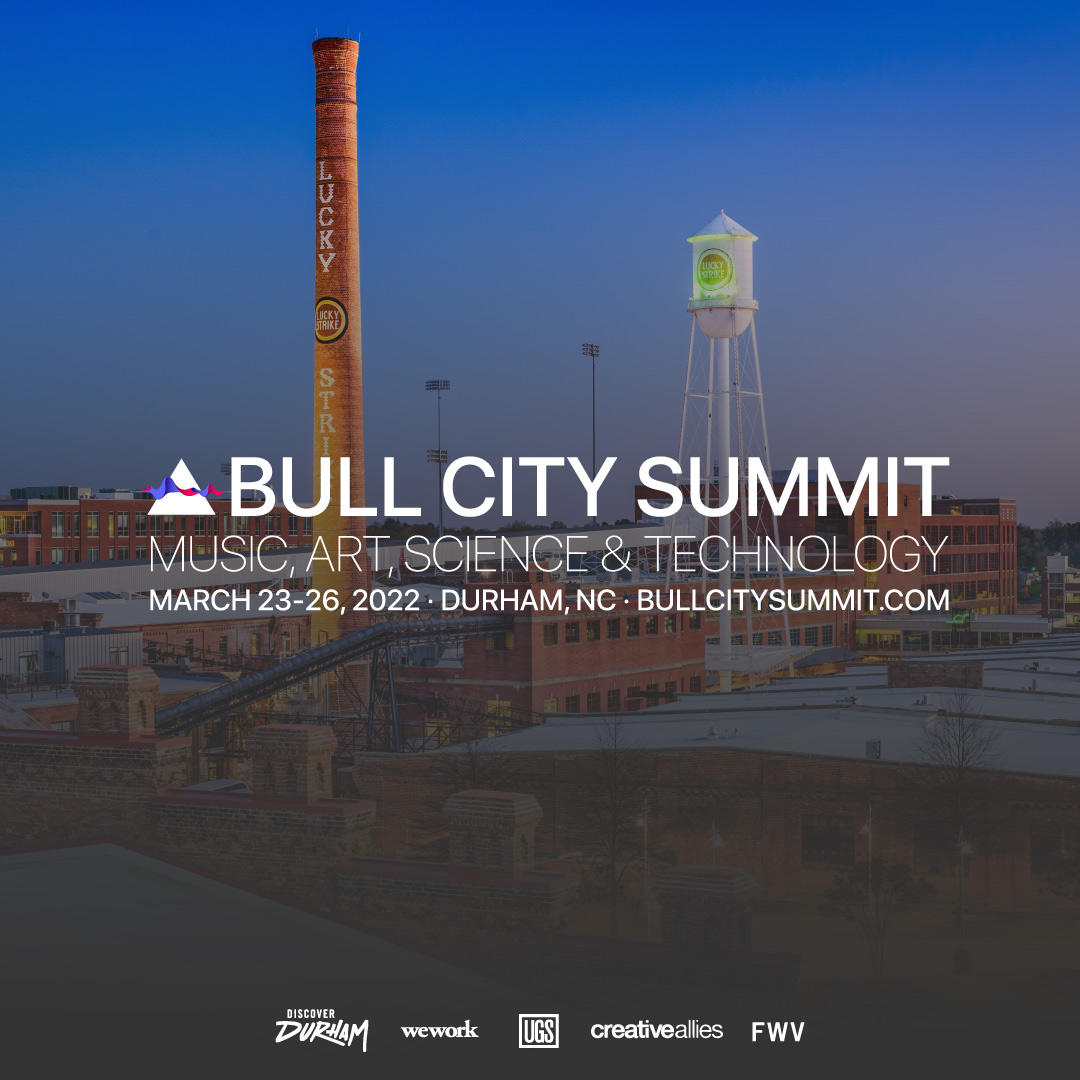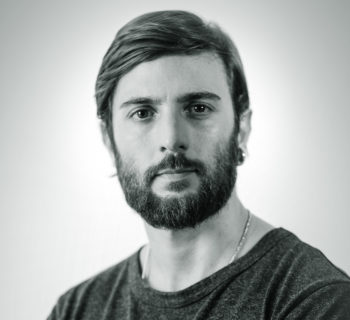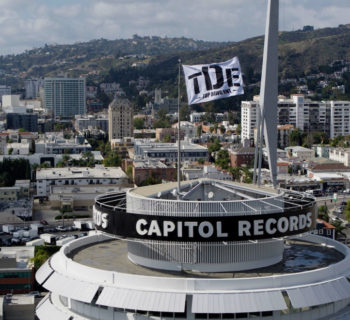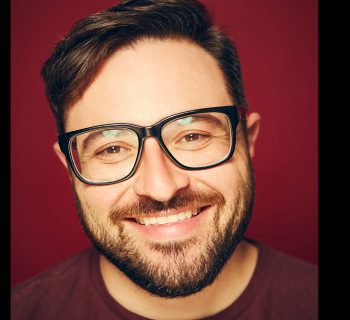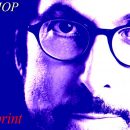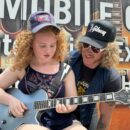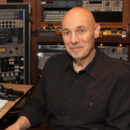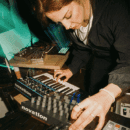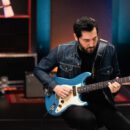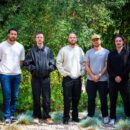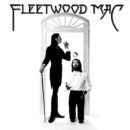Greg Franco and the new Man’s Body album, A Set of Steak Knives
Q: You’re in the process of assembling a compilation album/magazine where the bands are culled from Los Angeles, Chicago and New Zealand. How did this concept begin?
A: Andrew Maitai of Powertool Records in NZ came up with it in 2013. We did a few issues of LA and NZ bands. He called his comp Drill and I was IHNI (I Have No Idea). It was a way to bring these two independent scenes a bit more attention. Now that we have our Chicago-based band Man’s Body happening, I’ve come to know more bands from Chicago. I wanted to bring the magazine back and feature Kiwi bands that Andrew had discovered in the last 5 or more years, along with these new bands and folks we have been meeting and playing with.
Q: Talk to me about the Man’s Body recording that will appear on this collection, “Blue Ruin”.
The song was originally a J. Niimi instrumental called “Three Movements.” Back in 2018-19, we were playing in NYC, staying in Hell’s Kitchen, frequenting this bar called Blue Ruin. I thought what if I told a story from the perspective of a guy who won't look at his failures, and he's getting his own storyline all wrong? He’s a prick and he won’t face it, sitting alone at a bar. I know I have been this “woe is me” guy at certain times in my life. Lovely vocals at the end by Jeff McElroy and my bandmates Marco Obaya and J. Niimi, with Chicago drummer Gerald Dowd. It has a Pink Floyd feel to me. Incredible guitar work by Marco. We had a great day recording this at Kingsize Sound Labs in Chicago.
Q: Can we discuss the other bands you’ve selected to be on this comp?
A: Yeah, it’s going to be a choice joint, as they might say in NZ. Neptune Recovery is my cousin Jon Franco’s project out of Long Beach; he’s a great songwriter in the vein of STP and Kurt Cobain. There’s Gerald Dowd, who’s been employed by Man’s Body but is also a beautiful singer and songwriter. Some Gifts are here – singer Vic Lazar is a gem, a sort of D. Boon, indie-on-fire rocker. Derek Crawford is Man’s Body’s current drummer, but during the pandemic he went deep into his basement to write his record Supperduke, and we feature a song or two from it. The Diff are a bad-ass power pop band with a killer singer in the vein of Cheap Trick’s Robin Zander. Dorian Taj – think old school punk, like Johnny Thunders. John San Juan fronts the Hushdrops, a revelatory and epic three-piece band. I’m still sorting this all out; not sure who will be added to the list, so stay tuned.
Q: You’ve toured New Zealand and Australia. Man’s Body and your other band, Rough Church, have recordings out on Powertool in NZ. Tell me about the musical scene and community that has embraced you down under.
A: My band Ferdinand opened for the Clean in 2001. I became friends with them when they came back to LA on tour with Yo La Tengo; they’d stay at my Studio City place. I eventually invited myself to make a solo project album with them backing me…the audacity! So, in 2004 I recorded with them in Dunedin; Southpawwest was recorded by Tom Bell in an old unheated school gymnasium. It was a departure from the punk/indie rock stuff in Ferdinand. Robert Scott from the Clean and the Bats played the music for Andrew at Powertool, and he released the CD in 2006. The following year I brought back a new band for an extensive NZ tour to promote this record. This new band, formed in LA in 2005, was Rough Church. That tour was really successful.
We returned in 2014 with new RC members, and on an off-night in the tour schedule, we somehow made an album, with David Kilgour and Robert Scott, and Tom Bell at the recording helm at Chick’s Hotel in Port Chalmers. The album is called Shhhh... 2016 was the last time we toured NZ and Australia. We went as a three-piece version of Rough Church. We also went to Adelaide, Melbourne and Sydney.
Q: A Rough Church album is scheduled for release later in 2022. Tell me about the band and the songs.
A: Rough Church was less a priority for me due to the Man’s Body stuff. There was no real plan to do a record in 2020 because we were going to release and go full focus on the new Man’s Body album, A Set of Steak Knives, but we had to postpone the record due to the pandemic.
For a while no one was focused on anything but survival. And then in March 2020, Tracy Hill, our highly esteemed RC member, passed away. We loved him dearly, and I was totally adrift. This brought me back to the drawing board out of grief, I suppose. So I wrote for this record, which is completely dedicated to Tracy – the first song was “Song for Tracy.” It was recorded off the Android phone in two takes and then Kaitlin Wolfberg did the tender violins and piano. “Silly Heart,” a song to keep your chin up. “I’ll Disappear With You,” which was a lighthearted fun one for Kaitlin to sing.
The album is about grief and survival. So I wanted to call it Late Life Lightning. I’m in the middle-to-late part of my life; you tend to question yourself a bit more. Late life is also when a baseball pitcher throws a ball that curves or dips just when it reaches the plate. This late dip fools the batter to misread it as a bad pitch and to not swing at it. Yet it corrects itself into a strike. The lightning part is hoping to keep my intuition antennae up, looking for inspiration to come like lightning, clear and shocking sometimes, but charged enough so that I can use it.
Q: Man’s Body has just returned from Chicago recently. What is it about this city?
A: It feels like more a musical home to me now than LA. I was looking for another home since the Taix days, the venue where I booked shows from 2011-17, and since I couldn’t seem to make more than that happen in LA, J. seemed to have the better connection to venues in Chicago. It’s a better option to pursue things in there – the venues seem more about music than fashion or whatever bullshit is attached to music these days. I don’t want to seem so bitter, because I love my town. I just didn’t feel like I could make it work any longer.
Q: How are the Man’s Body songs different from what you pen for Rough Church? Some of the same players appear on both band’s songs.
A: I think the Man’s Body stuff is not as pop, but more indie rock and post-punk. I like to call it “proto punk,” J. calls it “soft punk.” My favorite quintessential Man’s Body song is the one J. wrote called “Handler.” That to me is a classic Man’s Body rocker. Rough Church has more of a jazz punk, sometimes R&B vibe at times, also a bit more twang and Americana thing going on.
Q: How did the name Man’s Body come about?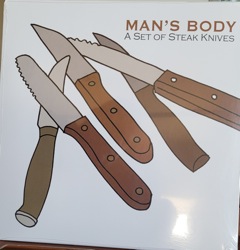
A: J. and I remembered the old yellow journalism days where “if it bleeds it leads,” and you could pick up a paper with a Weegee photo and a caption that said “Man’s body found at the bottom of the Chicago River,” for instance. It was mobster times, it seemed like a Chicago kind of thing. So our debut EP is called Found, but it also has that connotation of being delivered.
Q: Just released on vinyl and digital is a brand-new Man’s Body album, A Set of Steak Knives. Who did the front cover art work?
A: Chicagoan Derek Erdman, whose art is unmistakable. J. is his friend, so he asked him and this is his first record cover. So happy to have him do that for us.
Q: Man’s Body is a group, a trio augmented by musical friends. Can you give me some background on your other two bandmates?
A: J. Niimi has been on the scene in various bands and projects since the early 90’s. One of them was Ashtray Boy. He has a long history of playing drums in bands, touring, booking, but now he’s on guitar and a main songwriter in Man’s Body. He’s also a guitar builder and fixer, aka “Raymond Guitarro” – a Lou Reed meets James Bond musical asset, occupying the beds of beautiful women. Marco Obaya is our hot-shot guitar player, we love this guy. He produces bands, he has his own recording studio and has booked and played on his own tours, a great dude, he has a great attitude and feel about music.
Q: There are times where you collaborate via email or digitally with J., who is based in Chicago along with Marco. How is that process different than when you work together in a studio?
A: He sends a sketch, we sometimes re-arrange it, I usually come up with a lyric, and we work on how it fits in. I add it to a ProTools session, and dub a few vocals, then send it back. J. will write a better chorus for a song I was deep into, for instance. It can work really well, but we then record it full band to get that organic sound. We still need to represent that aspect of being a band, because that is what makes our sound more focused and pure to our ethos.
Q: Can you detail the unique musical relationship you have with J.? You guys have a songwriting partnership that yields great tunes. How did you initially meet him?
A: I hosted a Friday night thing at Taix restaurant in Los Angeles, and in 2014 Ashtray Boy was booked by Rebecca Balin, so I tagged along to a live podcast interview at Bedrock studios that she was hosting after the show. Next thing you know, J. and I are talking about the Chicago music scene, and I said I wanted Rough Church to play there for my 50th birthday the next year. I thought could we get him on drums for that? Then he was commissioned to build me a custom left-handed Telecaster. We did a Daytrotter session all the way out in Davenport, IA in the daytime, and then rushed back to play at Schubas in Chicago, barely making our 5 pm soundcheck.
And I started talking about doing a group out of Chicago, so in 2016, we recorded at Electrical Audio in Chicago. J. brought Marco down to play with us, on bass and guitar. J. came out to LA to finish it, and that brought us back to Chicago to start playing live gigs, as we now had a band with Marco. J. is a smart cookie; I’ve never met anyone like him before. I think our ideas are never-ending really, because the conversation between us is getting better over time. I’m more the laid-back California guy to his edgy, funny Chicago thing.
Q: Can you provide comments on some of the tracks on the new Man’s Body LP, A Set of Steak Knives?
A: “Contact Sigh”: This was written about that unrequited feeling in love, when you are smitten and you live for those emotions. In a way it’s a very stupid high, but there is still something right about it, too – it makes the world go around, and songs are inspired by it. The pandemic hits, and I’m reminded that “Turn, Turn, Turn” quotes the Bible book of Ecclesiastes in the lyric "a time to embrace, and a time to refrain from embracing". So I thought the song took on new meaning during a worldwide pandemic, though it started as a goof of a title.
“The Natural Host”: This is J.’s music, my lyrics, and J. with all the melodies. I wanted to evoke a kind of spirit that I aspire to be. I have this thought that sometimes in life what is unseen is sometimes more important that what is seen. It means that perhaps your kind acts of hope and good will make you spiritually protected, secure, and happier and unafraid. I’m certainly not there yet.
“Hit The Bricks!”: When Mark E. Smith of the Fall died, J. and I got on the phone about doing a tribute song for him. I wrote this lyric I thought had a good cadence. It felt like it could be a MES song. J. got on his guitar and sent me the track that same day. I wanted it to have a soccer chant feel to it; MES was big on his Manchester City team. Best I could think of was to say something hardcore, negative, and funny as a sing-along. It goes over well at shows, and we hope he’d like it.
“Last Day on Earth”: This is a J. Niimi special. We had quite a team of Dowd, Obaya and J. that day in Queens 2018. This one needs a video. It just pulls you down with an anvil weight. I sang these lyrics with the distinct feeling that I really don’t want to feel like this guy does. Marco’s guitar is so inspired, like Jeff Beck or something. This song is right on the edge for me, singing it probably saves me even now.
”Shower and a Cigarette”: I read a report on what was going on in Syria at the time, and it gave some gritty details about war. One man interviewed just after a bombing attack took place came out of his bunker and said to the reporter that he was on a frantic hunt to see who perished, and if his house was still there, and if it was, he wanted a shower. He had a towel. He desperately wanted a cigarette too, so he found one in the pocket of someone who had died. Reading this on Reuters my jaw dropped because we can relate to the human story of just wanting basic things.
Q: You have been involved in the regional Southern California music world for a few decades. Tell me about your first bands and some of the venues you played.
A: In 1993-94 I started Ferdinand with some friends. Laura Smith, my UCLA DJ buddy, was the first to join me on bass. Myself on guitar and vocals, and drummer Dean Shubin. We played the Highland Park/Silverlake scene from 1994-2003. We did a Spaceland residency, toured a bunch, and played SXSW in 2000.
The band I did next – after a 2004 solo record in New Zealand – is Rough Church, 2005 to present. In 2011-12 we added new band members Carey Fosse (guitar), Kaitlin Wolfberg (violin/keys), Alfredo Ortiz (drums), Dante Pascuzzo (bass), and Tracy Hill (percussion). We have been pretty consistent with membership for the past nine years.
Niimi, Marco Obaya and I started Man’s Body, 2016 to present. The band has released two full-lengths – Put Your Family In It, and now A Set of Steak Knives. It’s the most recent project, a Chicago-based band, and we share band members with Rough Church.
Q: You are a native of Los Angeles. Tell me about your time at UCLA. I remember you were a deejay on KLA.
A: I was there for five years. My buddy Conrad got us a show where he introduced me to stuff like the Fall, Wire, Bauhaus, the Jazz Butcher, Tall Dwarfs, the Birthday Party, etc. It was called “Difficult Listening Hour,” or sometimes “Rebellious Jukebox”. So once a week Thursdays 10 pm – 2 am, out of the back of Ackerman Hall, we raged and rocked out our weird-ass shit, piped straight to the dorms, whether they wanted it or not. We knew it was a joke really, but then again, the record labels had no idea that we were not really on the air, so there was swag to be had. Some of these KLA radio people work in film, TV, the music industry, publishing etc. to this day. We became aware early of all these great bands and records, and we got into shows and movies for free. We were a hip demographic!
Q: The radio station KROQ-FM, especially the 1978-1986 era made a big impact on your life. Tell me about what KROQ-FM meant to you. It seems to have reinforced an idea or a path for you to travel the independent music road.
A: It was glorious times. I actually interned. I got the morning DJs coffee, I pulled news from the AP machine. I was in high school at the time. The station was like a college radio format – XTC, the Pretenders, the Clash, Elvis Costello – but it was an actual commercial radio station. It was on the second floor of a Pasadena Century 21 real estate office – broken couches, run-down equipment. It had a hip audience because Rodney Bingenheimer was there playing the best new stuff – local, NY and British imports, which would seep into regular format. He was bringing the Ramones, Blondie, the Go Go’s, the Runaways up to the station. I wasn’t there for that actually, but I was listening 24/7. To me it was the center of the universe.
Q: KROQ-FM also sponsored concerts that were life-affirming events for you. What key bands and individuals reinforced your desire to play music?
A: I guess Elton John was my first pop star. Followed by David Bowie, Neil Young, the Velvets, Lou Reed, T. Rex, Devo, the Pretenders, the Cramps, the Buzzcocks, Iggy Pop, XTC, the Cure, Pixies and Prince. I was 15 when I saw U2, and they were a guiding star for me. They were not much older than me, so seeing them was like finding yourself not alone with thoughts of Catholic upbringing shit and finding your new peace punk purpose. It seemed one could actually start a band like that. They were vastly more intelligent than the average rock band too. The other most influential band was Minutemen. I saw D. Boon one time, waved at him on the 10 freeway and he waved back. I was anointed! My first band worshipped XTC and King Crimson, especially the Adrian Belew-era stuff. We couldn’t do any of it justice really, it was unattainable, so instead we made just made our own thing happen, and I have stayed with that plan ever since.
Harvey Kubernik is the author of 20 books, including Leonard Cohen: Everybody Knows published in 2014 and Neil Young Heart of Gold during 2015.
Kubernik also authored 2009’s Canyon Of Dreams: The Magic And The Music Of Laurel Canyon and 2014’s Turn Up The Radio! Rock, Pop and Roll In Los Angeles 1956-1972.
Sterling/Barnes and Noble in 2018 published Harvey and Kenneth Kubernik’s The Story Of The Band: From Big Pink To The Last Waltz. For November 2021 the duo wrote Jimi Hendrix: Voodoo Child for Sterling/Barnes and Noble.
Otherworld Cottage Industries in 2020 published Harvey’s book, Docs That Rock, Music That Matters, featuring interviews with D.A. Pennebaker, Chris Hegedus, Albert Maysles, Murray Lerner, Morgan Neville, Dr. James Cushing, Curtis Hanson, Michael Lindsay-Hogg, Andrew Loog Oldham, Dick Clark, Ray Manzarek, John Densmore, Robby Krieger, Travis Pike, Allan Arkush, and David Leaf, among others.
Kubernik’s writings are in several book anthologies, including The Rolling Stone Book Of The Beats and Drinking With Bukowski.
Harvey wrote the liner note booklets to the CD re-releases of Carole King’s Tapestry, Allen Ginsberg’s Kaddish, Elvis Presley The ’68 Comeback Special and The Ramones’ End of the Century).
Kubernik is very active in the music documentary world. During 2020 Harvey served as a Consultant on the 2-part documentary Laurel Canyon: A Place in Time directed by Alison Ellwood.

